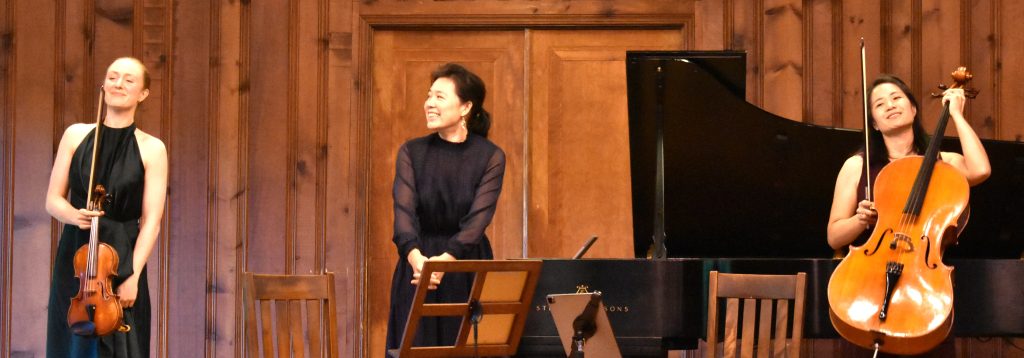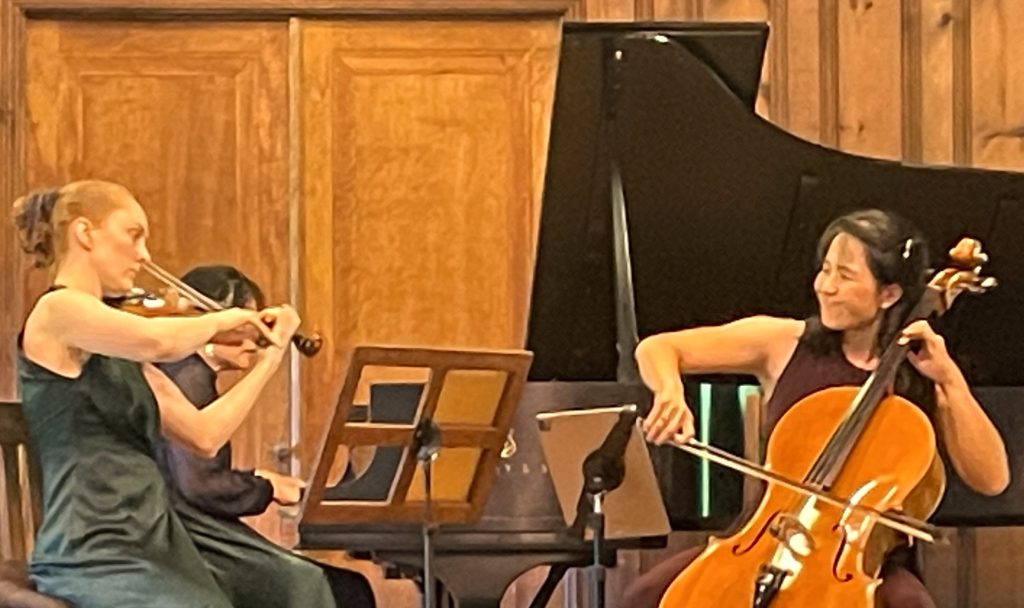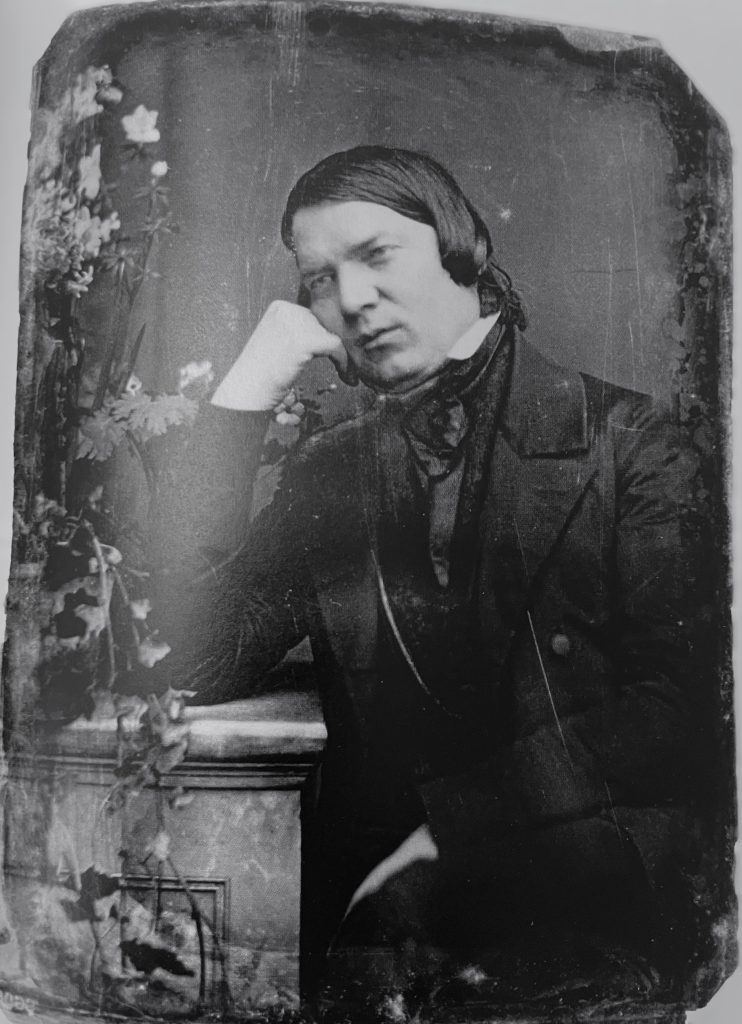
Last Sunday afternoon at Music Mountain with small cumulus clouds puffing overhead under an autumnal blue sky, Merz Trio (the German word means “to mark” and here they are marking music with their original blend of three instruments) placed their spell through unified dynamics on an appreciative audience.
The Trio met in the middle of a snowstorm in NYC in December 2016 and have been marking their progress upward ever since. They have a large repertoire that includes an impressive number of new arrangements of traditional music and a marvelous website to navigate at Merz Trio.
They opened with a medley of six pieces traversing from the medieval to the twentieth century. “O Fiery Spirit” by Hildegard von Bingen offered a new arresting arrangement of sacred music with emotional and psychological depth as piano, cello, and violin took individual turns in the melody and then blended with knitted unity. Andantino, from six studies in canonic form, Op.56 (1845) by Robert Schumann followed. This work was artfully performed in an arrangement by Theodor Kirchner as the opening and closing sets of the two fugues provide formal eloquence. “Mild Summer Night” by Alma Mahler was an attractive seasonal song she mailed in a letter to Zemlinsky during a period of flirtation. “Hush No More” (1692) was a song excerpt from The Faerie Queen opera (1692) by Henry Purcell suitably arranged by the Merz Trio. “Round Midnight” by Thelonious Monk offered a jazzy update with the addition of violin and cello in an arrangement by Miles Walter.
In conclusion, they played “Conception” (1895-6) by Alexander Zemlinsky who had been smitten by Alma Mahler and may, along with his short poem “A Beggar’s Love,” which he wrote in a letter to young Alma, be seen as a not-so-veiled marriage proposal, yet that was not to be, since she married Gustav. I found this last piece (in this sequence of sacred and personal love songs) to be the most entrancing and hypnotic of the lot. This wonderful, sensitive, and affecting arrangement was superbly articulated by the Merz Trio!

Piano Trio in F Major, Op. 80 (1847) by Robert Schumann was written to please Clara Wieck. This work introduced canonic distribution among the three instruments, marking an innovation for a piano trio. While there is some repetition of the theme, there is exuberant energy, emotional poignancy, and lyrical inflection. A Romantic ambiance was offered by Amy Yang on piano with exciting triplets; arresting sincerity was offered by Julia Yang on cello with formidable resonance; there was sustained dissonance with no clear resolution in the exciting and arresting violin line (would Clara yield and marry him?) played with ardent poignancy by Brigid Coleridge. (I was surprised to see that this was only the second performance of this composition at Music Mountain.)

Piano Trio in B Major, Op. 8 (1854) by Johannes Brahms acted as something of a thematic sequel to the Schumann piano trio. Brahms had visited Robert and Clara Schumann the year before when Brahms was twenty years old; the married couple were so delighted that they championed his nascent career. This work became his earliest published work (Clara had arranged the publication). Robert’s mental illness soon blossomed in early 1854. The constant change of tempo sounds like Robert’s condition is being delineated.
The opening Allegro appears to celebrate warm conviviality with the piano projecting appreciation and the strings engaging in lively conversation. In the Scherzo the violin of Brigid Coleridge excelled in astonishing animation. In the Adagio, the piano of Amy Yang charted love and liquid affection, even amid funeral tolling. The concluding Allegro was dominated by the moving and heart-rending cello of Julia Yang whose cello rang with such emotion that there remains in my ear a lingering and haunting emotion that will not depart from my memory!
This was a carefully structured venue that linked themes of love and loss at the fingertips of a trio who performed with astonishing unity!

Next Sunday at Music Mountain at 3 pm:
Cassatt String Quartet & Magdalena Baczewska, Piano
Ludwig van BEETHOVEN String Quartet in F Major, Opus 18, #1
Victoria BOND Blue and Green music (inspired by Georgia O’Keeffe)
Johannes BRAHMS Piano Quintet in F Minor, Opus 34